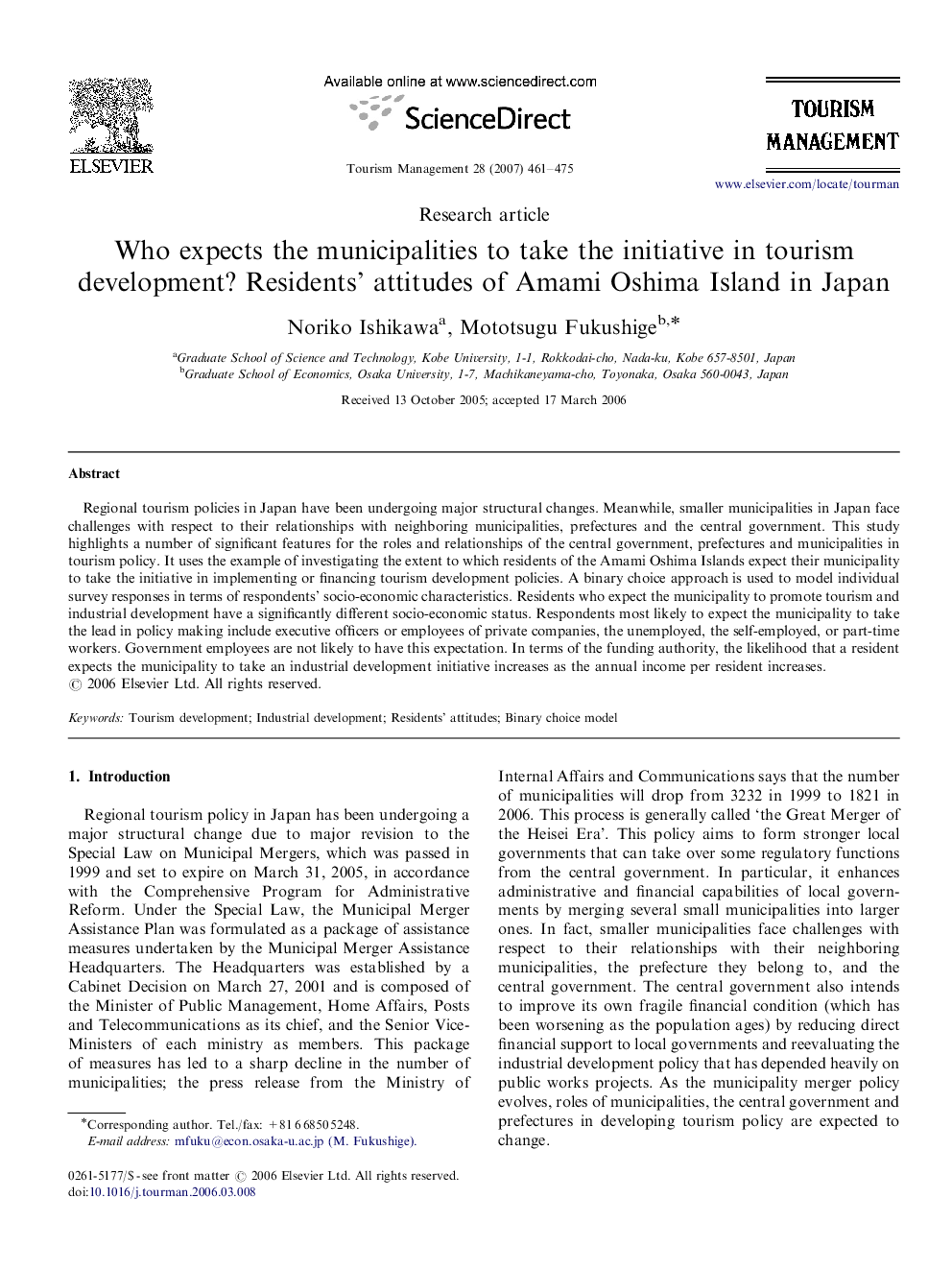| Article ID | Journal | Published Year | Pages | File Type |
|---|---|---|---|---|
| 1012958 | Tourism Management | 2007 | 15 Pages |
Regional tourism policies in Japan have been undergoing major structural changes. Meanwhile, smaller municipalities in Japan face challenges with respect to their relationships with neighboring municipalities, prefectures and the central government. This study highlights a number of significant features for the roles and relationships of the central government, prefectures and municipalities in tourism policy. It uses the example of investigating the extent to which residents of the Amami Oshima Islands expect their municipality to take the initiative in implementing or financing tourism development policies. A binary choice approach is used to model individual survey responses in terms of respondents’ socio-economic characteristics. Residents who expect the municipality to promote tourism and industrial development have a significantly different socio-economic status. Respondents most likely to expect the municipality to take the lead in policy making include executive officers or employees of private companies, the unemployed, the self-employed, or part-time workers. Government employees are not likely to have this expectation. In terms of the funding authority, the likelihood that a resident expects the municipality to take an industrial development initiative increases as the annual income per resident increases.
